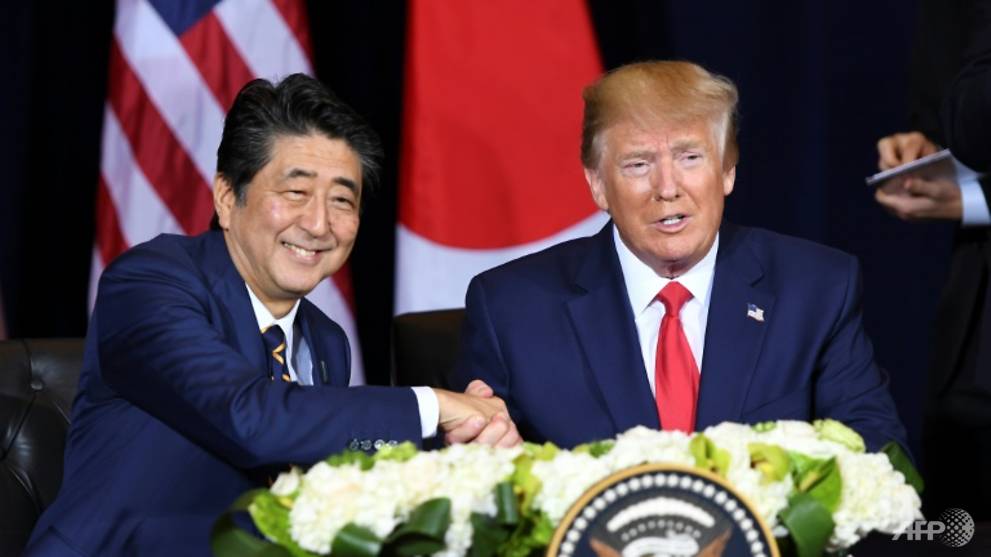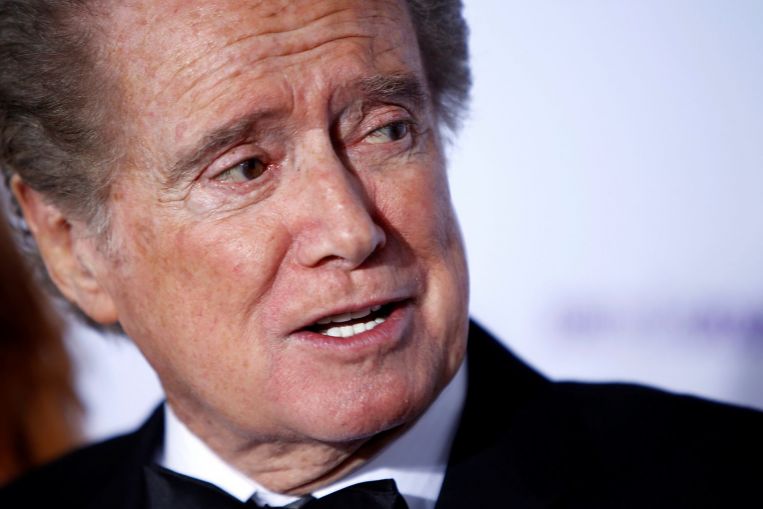
NEW YORK: US President Donald Trump on Wednesday (Sep 25) said Washington and Tokyo had taken a major step towards sealing a comprehensive new trade deal, after a year of negotiations between the global economic powers.
Sitting next to Japanese Prime Minister Shinzo Abe, Trump said the leaders "formally announce the first stage of a phenomenal new trade agreement," adding "this is a big chunk, but in the fairly near future we are going to have a lot more."
Advertisement
Advertisement
As Trump and Abe met on the side of the UN General Assembly in New York, Abe said a deal would be "a win-win solution for Japan and the United States."
Under the agreement, Japan will cut tariffs for US$7 billion in US farm exports, including beef and pork, while reducing mark-ups on purchases of American wheat and barley.
In return, Washington has agreed to cut US tariffs on US$40 million in Japanese agricultural goods and to ease tariff rate quotas on the country's beef, allowing Japan to compete for a greater share of the US market.
But the announcement did not resolve the thorny matter of US threats to slap tariffs on auto imports.
Advertisement
Advertisement
Trump, using the threat of tariffs, has sought a comprehensive deal to scale back the US trade deficit with Japan and to benefit American farmers – whose industry helps form a key base of political support.
Trump said a trade agreement would be important to "reduce our chronic trade deficit."
'WORKING ON PHASE TWO'
In a separate agreement, US and Japanese officials have also agreed to eliminate duties on digital products like videos, music and ebooks as well as to ensure cross-border that data transfers are barrier-free.
But Tokyo has demanded a firm commitment that Trump will not impose 25 per cent duties on autos, which are vital for the sluggish Japanese economy, according to Japanese media reports.
After postponing an earlier deadline, Trump has given himself until Nov 17 to decide whether to go ahead with the tariffs, a proposal which has alarmed Berlin and Tokyo.
The United States had been at a disadvantage since Trump's decision in 2017 to withdraw from the Trans-Pacific Partnership negotiated by his predecessor Barack Obama, whicRead More – Source










